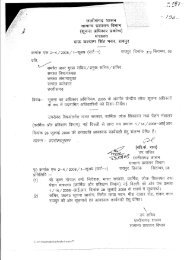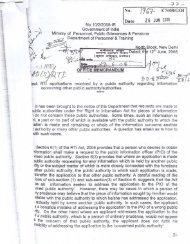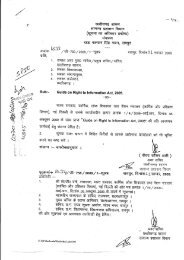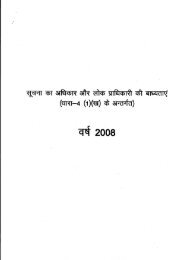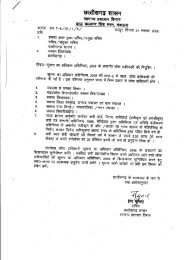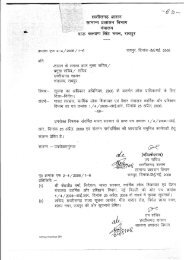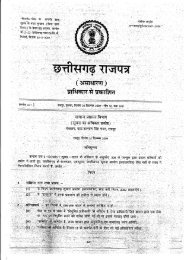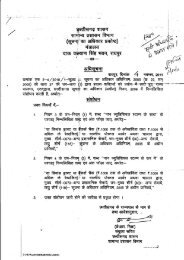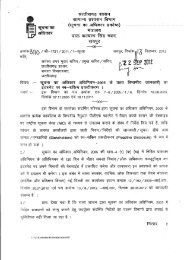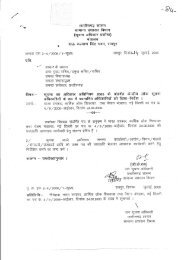1r" 19(\) - CG State Information Commission
1r" 19(\) - CG State Information Commission
1r" 19(\) - CG State Information Commission
Create successful ePaper yourself
Turn your PDF publications into a flip-book with our unique Google optimized e-Paper software.
d1~ct.e~.in its !,reambular paragraphs, the enactment seeks to<br />
transparency, arrest corruption and to halQ the GovciTu"1i.Ci1!'<br />
instrumentalities accountable to the governed. This spirit of the Act must<br />
borne in mind while construing the provisions contained therein.<br />
@ Access to information, under Section 3 of the Act, is the mle and<br />
exemptions under Section 8, the exception. Section 8 being a restriction on<br />
this fundamental right, must therefore is to be strictly construed. It should<br />
not be interpreted in manner as to shadow the very right itself. Under<br />
Section 8, exemption from releasing information is granted if it would<br />
impede the process of investigation or the prosecution of the offenders. It is<br />
apparent that the mere existence of an investigation process cannot be a ,<br />
ground for refusal of the information; the authority withholding information·<br />
must show satisfactory reasons as to why the release of such information<br />
would hamper the investigation process. Such reasons' should be germane,<br />
and the opinion of the process being hampered should be reasonable and<br />
based on some material. Sans this consideration, Section 8(1)(h) and other<br />
such provisions would. become the haven for dodging demands for<br />
infonnation.<br />
@A rights based enactment is akin to a welfare measure, like the Act,<br />
should receive a liberal interpretation. The contextual background and<br />
history of the Act is such !lB" !.he exemptions, outlined in Section .<br />
relieving the authorities from the obligation to provide information,'<br />
constitute restrictions on the exercise of the rights prc\'ided by it. There:fore~~<br />
such exemption provisions<br />
have to be construed in their tenns; there is OA""o':iI<br />
authority supporting this view ( See Nathi Devi v. Radha Devi Gupta<br />
(2) see 201; B. R. Kapoor v. <strong>State</strong> ofTamil Nadu 2001 (7) see 231<br />
V. Tulasamma v. Sesha Reddy <strong>19</strong>77 (3) see 99). Adopting a diflfereliJlj<br />
approach would result in narrowing the rights and approving a JUOJ1C'"Uljll<br />
mandated class of restriction 011 the rights under the Act, which<br />
unwarranted .<br />
. , ,<br />
, , ,



